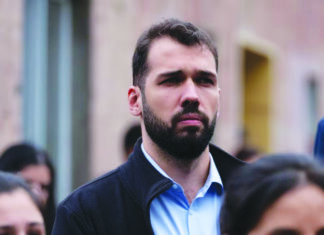The decades after World War II constituted a period of global decolonization. Many countries in Africa, Middle East and Southeast Asia attained independence in that period. The Ottoman Empire collapsed in the wake of World War I and only thanks to the friendship between Turkish leader Mustafa Kemal Ataturk and Russian leader Vladimir Lenin was Asia Minor saved as the home of the modern Republic of Turkey.
During World War II, Turkey, as a tacit collaborator with Nazi Germany, was put on the chopping block again, to be dismantled by Stalin’s Red Army, when a rescue came from British Prime Minister Winston Churchill at Fulton, Missouri, where he delivered his famous speech about the Iron Curtain, marking the start of the Cold War.
After being saved twice from being annihilated, Turkey has emerged in recent years as an unapologetic colonizer.
In a recent book, Nostalgia for the Empire: The Politics of Neo-Ottomanism, historian M. Hakan Yavuz credits former Prime Minister/President Turgut Ozel with initiating neo-Ottomanism, whose footprints President Recep Tayyip Erdogan has been following to build the historian describes as “Islamic Kleptocracy.”
In a book review in the London Times Literary Supplement, Gerald MacLean further develops the topic by writing: “Yavuz shows how Erdogan’s devotion to [Ottoman Sultan] Abdelhamid was partly inspired by the writings of Necip Fazil Kisakurek, a “fascist political Islamist ideologue” whose influential periodical, Buyuk Dogu, (1943-1975) was steeped in resentment of Turkey’s westernizing reforms. Advocating a restoration of Ottoman Islamic values, Necip Fazil taught that “hatred … is the defining feature of the good believer,” giving rise to “a passion-based political activism.”
It is important to recognize the origins of Erdogan’s world view and what motivates his drive to chase a neo-Ottomanist future. It is also interesting to discover the source of his disdain for Western-style democracy. Only then can we understand his hatred of those values and his motivation to destroy them.









